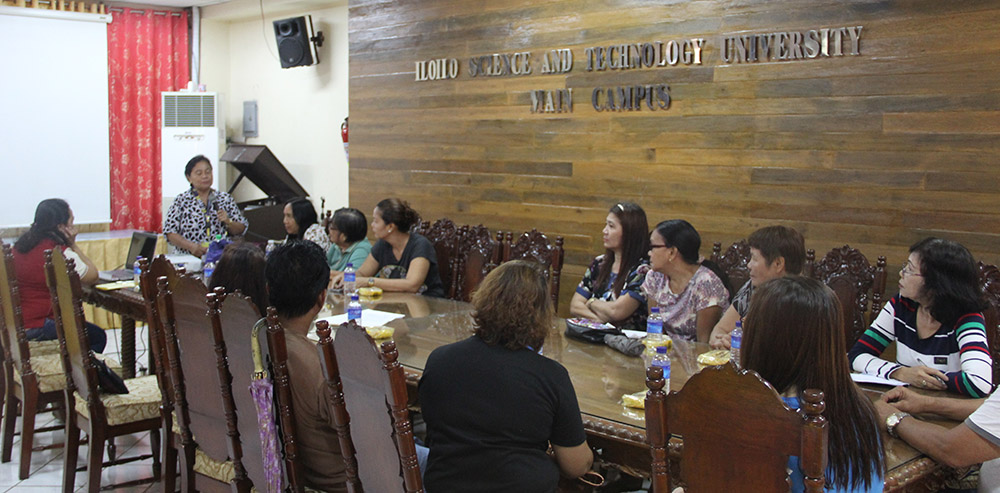The Gender and Development (GAD) with the Office of the Student Affairs and Services (OSAS) invited boarding house owners to a consultation and gender orientation on May 22, 2018 to establish a smooth and healthy partnership for students’ welfare.
With the help of the boarding house owners, the school identified problems and drafted plans of intervention to student’s activities detrimental to their studies. The issues raised were delay in payments, respect to house rules, cleanliness, manners and conduct, smoking and drinking, few cases of hazing and incidents of premarital sex. It was noted that the school could help in prevention or mitigation of such cases.

After identifying the common problems, Prof. Emily de la Cruz solicits opinions on possible partnership of boarding house owners and the school.
Dr. Maria Asusina Asuncion E. Echaverria, OSAS Director, said “problems and obligations should be identified and addressed for the welfare of the students.” She added that “this is the first consultation held to acknowledge the boardinghouse owners as stakeholders of student’s development.”
Mutual benefit for the students’ interests and boarding house business was also discussed. Prof. Pedro Fontanalgo, Legal Office Chief, laid out the plan to draft the guidelines for the issuance of a certificate of accreditation as legitimate partner of ISAT U. Once materialize, the OSAS will make recommendation of licensed and desirable boarding houses to students who are going to stay in the city during school days. In return the boarding house owners will notify the school on occurrence of identified problems. In such case, the GAD, the guidance counselors and the OSAS will make necessary intervention for the benefit of the students and the boarding houses.

Dr. Ma. Asusina Asuncion E. Echaverria, OSAS Director , acknowledges the role of the participants in students’ development.
It was further discussed that school’s responsibility is not only confined inside the campus but also outside of the school. It was bared that the GAD will be conducting visits to check the condition of the boarding houses.
Values formation in boarding houses was also given attention. Prof. Emily de la Cruz, GAD Focal Person, oriented the participants on the importance of gender and development in values formation, specifically in handling gender differences and the facilities that address their needs.







